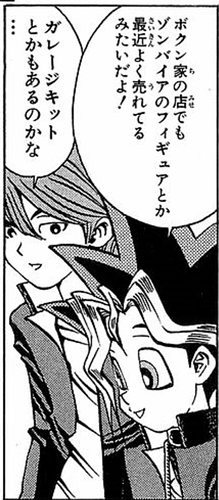It indicates that the え is voiced or “muddied” (濁点 (だくてん), the two dots, means like “voicing mark(s)”) so kind of like the え sound is strained and you can kind of hear the throat gurgle or scratch or strain. For reference, 連濁 (れんだく) refers to so-called “sequential voicing” as the kanji suggest. So it is used for voicing within a word where a sound would normally not be voiced, not just for general voicing. Other related words include 濁音, 半濁点, 濁る, and 鼻濁音. You obviously don’t need to know any of these terms though.
Here is an example. Here is another example. Here is a third example.
On this topic, you may also enjoy this little lad: ゑ゙





 .
.